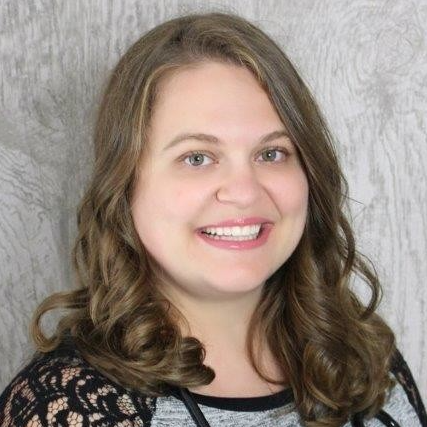There are many reasons that clinicians will pick up a side gig. Some are looking for additional fulfillment; others want to keep their skills current and fresh. Many are keen on bolstering their finances as well, since healthcare providers, or HCPs, often carry hefty tuition debt.
The American Association of Colleges of Nursing estimates that graduate-level nursing graduates carry $40,000 to $54,999 in debt. The Association of American Medical Colleges puts the average medical school debt for the class of 2016 at about $190,000.
Luckily, there are many options for extra income streams for clinicians in the form of side hustles ranging from a few hours each week to a part-time job. They span a variety of fields, from creating medical content and health education to clinical and consulting work. This post will cover the top side hustles for HCPs and why they may work for you.
Health content creation
Health information is everywhere: on television, on major websites, and on social media. Someone needs to write it, produce it, and review it.
Medical reviewing
Have you ever seen an upside-down IV or fetal monitor on TV? Turns out that shows and movies rely on medical consultants to get things right. Our society is saturated with more media than ever before; between emails, posts, websites, and blog posts, health-related endeavors must have their facts correct. A health expert reviews content to ensure that customers and audiences are provided accurate medical information.
Content writing
As a medical expert, putting together content that is well researched and backed by evidence is a pretty straightforward pursuit. If you are a talented writer, you’ll be able to create engaging medical articles for many different publication types.
Health education
Educating students and professionals, whether for a sizable time commitment or on your own schedule, can be quite rewarding.
Tutor or teaching assistant
If you are a nurse who loves to take on new graduates or a physician who is always training medical students, tutoring may be a natural fit for you. Many HCPs spent a lot of time in school and recall all that studying as a special time. For busy professionals, tutoring even for just a few hours each week can fit with your schedule. Here are some resources for those interested in tutoring work:
Adjunct, associate, or clinical instructor
Becoming an instructor or an assistant professor typically takes a greater commitment than tutoring. All nursing schools rely on clinical and adjunct instructors and to guide students through nursing practice. Medical schools need physicians to become associate professors. Other health professionals need instructors too, but keep in mind that they often seek those with advanced degrees. Check local universities or online programs for states where you are licensed.
Clinical work
Clinical jobs traditionally pair patient contact with your expertise. While the specifics of the role may vary, there are many part-time positions.
Digital health
Now that most people have smartphones handy, telehealth has taken the world by storm. The pandemic has increased the likelihood of patients preferring their use and for health insurers to cover telehealth visits. It’s crucial to ensure that your state licensure is active for the patients you see and the scope of care you provide. Some resources include:
Clinical contract jobs
There are a number of short-term jobs that need an HCP for a brief period, such as the following:
Summer camp nursing or medical director
Teaching CPR, first aid, or childbirth education
Pharmaceutical research
Pharmaceutical research and development is booming. With companies researching new drugs, they are always looking to hire medical professionals. This area can be either clinical or nonclinical. Nurses and physicians fulfill the roles of board members, study nurses, clinical research associates, medical science liaisons, regulatory work, and medical directors. You’ll want to make sure your primary job does not have any rules against conflicts of interest.
Part-time clinical practice
Many HCPs opt to work in a part-time role that differs from their primary career to diversify their experience. Nurses may work in home health or as night nurses. Physicians may consider moonlighting in long-term care or as a medical director. There are also locum tenens or medical concierge jobs to consider.
Nonclinical skills
You’ve acquired all sorts of skills, so why not apply them? Whether it’s transcribing medical reports or performing medical-legal consulting, there are many options.
Medical transcription
If you’re a fast and accurate typer, then transcribing medical data from dictation will be an effortless pivot. Many third-party companies allow you to pick up work as needed to help providers transcribe medical histories, procedures, and operative reports.
Legal consulting
Lawyers, insurance companies, and government agencies seek qualified medical experts for legal consultations. These consults can range from expert witness reports to case summary reviews. Some medical professionals even testify in court for medical malpractice cases for a significant retainer fee.
Medical consulting
There is a wealth of consulting work available. Many facilities need a physician to act as a medical director, perform peer review, advisory work, or administration consultation. Others require an advanced provider to review patient files and documentation for quality assurance. Insurers need specialists to review prior authorization and claims.
Bonus side hustles
The opportunities suggested above can bring home a quick paycheck. Other hustles, however, have significant barriers to entry. For example, the following require significant learning or work up front:
Blogging
Bloggers put posts up on the web that people want to read. While many medical professionals will write about what they know best, some write about hobbies, fitness, or food. Yet there is a lot of learning required to make good money and usually some costs involved as well.
Health coach
Health coaches partner with clients to facilitate changes in well-being. Medical professionals who become health coaches make the best kind; they bring their experience and training to the table.
Speaking gigs
Healthcare speakers educate their audiences or inspire them to improve their lives. With your background and knowledge, you can provide excellent takeaways.
The payoff
Healthcare providers work hard every day. All their medical training prepares them for a mix of careers in unexpected ways.
If you are looking for a part-time gig or filling a few hours with something new, there are many options for earning supplemental income, along with pursuing projects that nurture your passions.

Why trust our experts?
















